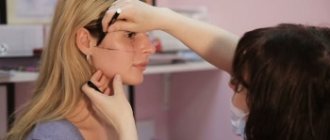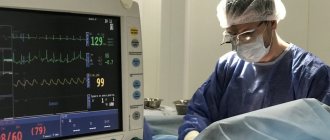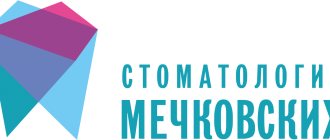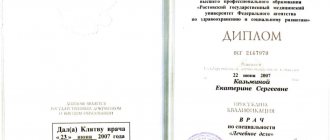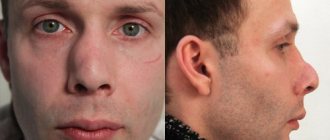Plastic surgeon Pavel Kuprin
What qualities should a plastic surgeon have? Is it only high professionalism and many years of experience that make a person a Doctor with a capital D? Dr. Kuprin’s patients believe that they were lucky enough to communicate with a real surgeon, at the same time a deep and versatile person, the standard of a Doctor.
Pavel Evgenievich Kuprin - plastic surgeon, candidate of medical sciences, full member of OPREH, IPRAS, teacher of the department of plastic surgery of State Medical University named after. I. I. Mechnikova. Head of the Center for Plastic and Reconstructive Surgery in St. Petersburg.
Corr.: Pavel Evgenievich, so what is your main secret? Why do patients love you so much?
Pavel Kuprin: I would like to think that my patients respect me for my professional merits. I try to find an approach to each of them. Before performing an operation, I delve into the very essence of the problem. Together with the patient, I try to understand what he expects from the operation in a global sense.
It is understandable when it comes to eliminating aesthetic deficiencies, but there are often cases when a person wants to correct his appearance for personal, internal reasons. Let's say a woman has a second breast size, but she wants to have a third. Before I undertake this, I must understand her motives.
Corr.: Why do you need this? Can't a patient just want to improve his appearance?
Pavel Kuprin: It’s more complicated here. A person will never do anything “just like that,” much less undergo an operation. After a one-on-one conversation, many of my patients admitted that thanks to plastic surgery they want to change their lives for the better. This is a completely wrong approach! People see beautiful and successful people on screens and in magazines, and it seems to them that it was their external attractiveness that made them heroes of gossip columns. But it’s worth looking at these people at the beginning of their careers and it becomes clear that external gloss and apparent ideality are acquired along with money and fame, and not vice versa.
I also have to explain that a new nose or beautiful breasts will not bring happiness in your personal life. More precisely, how: it will bring self-confidence, and this can already affect personal happiness. Nothing depends directly on plastic surgery! This is only a measure, not a panacea for personal failures.
Plastic surgeons do not cure or save lives, they improve appearance and get rid of complexes. This is both simpler and more difficult.
Corr.: Pavel Evgenievich, based on the above, what do you consider the main task of your work?
Pavel Kuprin: First of all, I must help a person realize his problem, if it really exists. When the patient and I discuss the upcoming operation and understand what we want to achieve in the end, I perform the operation. I consider getting an ideal result that a person likes to be the best reward for myself. This is the main task of the doctor.
Corr.: You say “we will decide”, “we will understand”... So you do everything together with the patient?
Pavel Kuprin: Of course. This is normal surgery and medicine treatment. When a person has a finger reattached or their arm restored, they don’t ask him if he wants it. Doctors are just doing their job. In plastic surgery, everything is different: the operation is performed on an initially healthy person. We do not treat or save lives, we improve appearance and get rid of complexes. This is both simpler and more difficult.
Corr.: Have you ever thought that saving lives is more important than helping correct defects in appearance? Why did you choose plastic surgery?
Pavel Kuprin: I came to plastic surgery from reconstructive surgery. While I was studying medicine, I couldn’t say exactly what field of medicine would interest me in the future. One day I went into an operating room as a trainee, saw how surgeons worked - and realized that I would be one of them. Necessarily. From that day on, I directed all my strength towards achieving this goal, and soon I was performing complex reconstructive surgeries on the limbs myself, until specialists from the USA came to our university in 1993. Then I first learned about the existence of plastic surgery as a separate field, because in those years in our country it was in its infancy.
American surgeons held master classes and seminars where they shared their experience, and I got involved. I became interested in what plastic surgery can do, whether there are limits to its application. Twenty years have passed since then, and I still ask myself this question!
Corr.: It turns out that plastic surgery seems to you a more promising and interesting field?
Pavel Kuprin: Plastic surgery is a very complex part of medicine, because it combines both the creative component and the work of a psychotherapist. In addition, no one excluded the hard, painstaking and extremely responsible work of the operating surgeon.
If you take plastic surgery seriously and take responsibility not only for the result, but also for the psychological state of the patient, then this work is very exhausting, in every sense. But I'm not complaining, not at all. I love my job very much, and there is nothing better than leaving my last strength in the operating room, but making a person happy by guessing his desires and making them come true.
Corr.: Pavel Evgenievich, tell us about some patient you remember.
Pavel Kuprin: In my practice there have been many interesting cases, I will say more: there are no uninteresting ones for me. But I’ll tell you about one thing. About 5 years ago a woman approached me with a request to enlarge her breasts. By that time, she was unmarried, without children, and was actively taking care of herself. She was sure that 3-size breasts would immediately put her in the spotlight, make her a popular person in her social circle and increase her chances of improving her personal life. She didn’t tell me this openly, but I understood that there was just such an underlying meaning in her words. We talked for a long time, and I managed to convince her to postpone the operation. It seems to me that at that time she did not fully understand the reasons for the refusal, but, nevertheless, she did not turn to another surgeon. And then a year ago she came to me for a consultation again. I immediately remembered her, probably because it took me a lot of effort to dissuade her that time. She came with the same request, but from the very beginning of the conversation I realized how much she had changed. She became more balanced, calm, and reasonable. In 4 years, she found a loved one, got married, and gave birth to two children. She was happy and now wanted to have the operation really for herself. Her guidelines in life and motives have changed. You know, she thanked me for sending her home the first time!
I know that many of my colleagues turned to each other for help, so correcting flaws in their appearance is not uncommon among doctors themselves. I myself performed abdominal liposuction and, on occasion, share my experience with patients.
Corr.: Did you perform surgery on her?
Pavel Kuprin: Yes! And we were both pleased with the result. She continued to live in harmony with herself and her body.
Corr.: Pavel Evgenievich, patients often ask whether surgeons themselves resort to plastic surgery, and if not, why not? How do you feel about such questions?
Pavel Kuprin: Quite natural interest! But a plastic surgeon can't do an operation just to say that he went through it? I know that many of my colleagues turned to each other for help, so correcting flaws in their appearance is not uncommon among doctors themselves. By the way, I did abdominal liposuction myself and, on occasion, I share my experience with patients.
Corr.: So you tested the technique on yourself? I think I'm beginning to understand why your patients speak of you with admiration! Let me ask, perhaps, the last question: what is your main principle in your work? What is your motto?
Pavel Kuprin: My life’s work is medicine. My motto relates to her: “Do no harm.” A doctor who follows this principle, by definition, cannot be bad.
Corr.: Pavel Evgenievich, thank you for the conversation!
Dr. Kuprin Plastic Surgery Clinic
“Dr. Kuprin Plastic Surgery Clinic” was founded in 2011.
The medical center offers its patients a high level of comfort, confidentiality, absolute safety and reliability. In their work, specialists use effective technologies and introduce new treatment methods; they have modern equipment at their disposal.
The clinic has an inpatient department with comfortable and well-equipped wards, an intensive care ward and an operating room equipped for plastic surgery, laser facial rejuvenation surgery, microsurgery of blood vessels and nerves, endoscopic video surgery, ultrasound surgery and other procedures.
The clinic's specialists have extensive experience in the field of plastic and reconstructive surgery. They have behind them universal theoretical training and training in surgical techniques of all levels of complexity. Patients are received by: three plastic surgeons, two gynecologists, cosmetologists, a phlebologist surgeon, a urologist-andrologist, and an anesthesiologist-resuscitator.
In addition to plastic surgery, the clinic conducts scientific research, specialized seminars and master classes. Here doctors from the Department of Plastic Surgery of the State Medical University. I.I. Mechnikov.
Dr. Kuprin’s clinic works in the following areas:
- aesthetic plastic surgery;
- Maxillofacial Surgery;
- cosmetology;
- plastic gynecology;
- surgical urology;
- phlebology.
Specialists:
- Belousov Anatoly Egorovich Plastic surgeon, Doctor of Medical Sciences
- Dmitriev Alexander Anatolyevich Plastic surgeon, Candidate of Medical Sciences
- Kuprin Pavel Evgenievich Plastic surgeon, Candidate of Medical Sciences
- Pogrebnyak - Bulaeva (Merker) Natalya Vladimirovna Plastic surgeon
- Romanchishen Philip Anatolyevich Plastic surgeon, Candidate of Medical Sciences
- Sanosyan Lena Samvelovna Plastic surgeon
- Sviridov Maxim Konstantinovich Plastic surgeon
- Yaklashkin Alexander Venyaminovich Plastic surgeon
Prices for clinic services:
| Plastic surgery | ||
| Face-to-face consultation | 1.500 rub. | |
| Abdominoplasty | 150.000 — 450.000 rub. | |
| Mini abdominoplasty | 50.000 — 180.000 rub. | |
| Gastric banding | 165.000 — 200.000 rub. | |
| Blepharoplasty | 40.000 — 130.000 rub. | |
| Asian eyelid surgery | 45.000 — 80.000 rub. | |
| Canthoplasty, canthopexy | 35.000 — 45.000 rub. | |
| Brachioplasty | 140.000 — 180.000 rub. | |
| Gynecomastia in men (treatment) | 35.000 — 180.000 rub. | |
| Gluteoplasty (buttock surgery) | 150.000 — 250.000 rub. | Without the cost of implants. |
| Intimate plastic surgery | ||
| Hymenoplasty | 28.600 — 48.000 rub. | |
| Labiaplasty | 31.500 — 72.000 rub. | |
| Surgical defloration | 9.100 — 14.400 rub. | |
| Cruroplasty (shin surgery) | 120.000 — 180.000 rub. | Without the cost of implants. |
| Scar treatment (surgical) | 16.500 — 150.000 rub. | |
| Liposuction | 15.000 — 90.000 rub. | Treatment of each new zone 9,500 - 12,000 rubles. |
| Lipofilling | 15.000 — 60.000 rub. | |
| Mentoplasty | 25.000 — 54.000 rub. | No implant cost. |
| Otoplasty | 25.000 — 90.000 rub. | One - both ears. Skin grafting with local tissues for one-stage reconstruction 60,000 - 190,000 rubles. |
| Cheek surgery | 45.000 — 85.000 rub. | |
| Breast lift (mastopexy) | 70.000 — 300.000 rub. | |
| Thigh lift | 140.000 — 200.000 rub. | |
| Facelift | 150.000 — 200.000 rub. | |
| Circular lift, SMAS | 240.000 — 450.000 rub. | |
| Forehead and eyebrow lift | 90.000 — 180.000 rub. | |
| Check-lifting | 90.000 — 195.000 rub. | |
| Endoscopic lift | 90.000 — 180.000 rub. | |
| Butt lift | 150.000 — 350.000 rub. | |
| Rhinoplasty | 154.000 — 250.000 rub. | |
| Revision rhinoplasty | 200.000 — 400.000 rub. | |
| Septoplasty | 90.000 — 150.000 rub. | |
| Removing Polyacrylamide Gel | 15.000 — 190.000 rub. | |
| Breast augmentation | 110.000 — 300.000 rub. | Without the cost of implants. |
| Replacement of implants (reendoprosthetics) | 66.000 — 250.000 rub. | |
| Correction of nipples and areolas | 25.000 — 95.000 rub. | 1 side. |
| Breast reconstruction | 140.000 — 250.000 rub. | Without the cost of implants. |
| Removal of implants | 90.000 — 160.000 rub. | |
| Breast reduction | 180.000 — 450.000 rub. | |
| Cheiloplasty | 15.000 — 35.000 rub. | Increase in adipose tissue (1 injection). |
| Cosmetology | ||
| Biorevitalization | ||
| IAL System | 8.000 — 11.000 rub. | 1 ml. |
| Botulinum toxin | ||
| Botox (1 unit) | 320 rub. | |
| Dysport (1 unit) | 90 rub. | |
| Treatment of hyperhidrosis | 10.000 — 40.000 rub. | Laser treatment of sweat glands RUR 38,500 — 90,000 rub. |
| Contour plastic | ||
| Restylane | 10.000 — 15.000 rub. | |
| Surgiderm | ||
| 18 | 11.000 — 14.000 rub. | |
| 24XP | 11.500 — 14.000 rub. | |
| 30XP | 13.000 rub. | |
| Juvederm | ||
| Hydrate | 8.000 — 11.000 rub. | 1 ml. |
| Volbella | 14.000 rub. | |
| Voluma | 15.000 rub. | |
| Ultra-2 | 11.000 — 14.000 rub. | |
| Ultra-3 | 11.500 — 14.000 rub. | |
| Ultra-4 | 13.000 rub. | |
| Ultra Smile | 9.500 rub. | |
| Laser peeling | 15.000 — 100.000 rub. | |
| Scar treatment (non-surgical) | 3.900 — 42.000 rub. | Scar resurfacing (mechanical or laser). Diprospan (kenalog) - 2,400 rubles. Repeated injection - 1,800 rubles. |
| Non-surgical liposuction | 60.000 — 90.000 rub. | Treatment of each new zone 9,500 - 12,000 rubles. |
| Mesothreads | 700 rub. | |
| Mesotherapy | ||
| NCTF 135 | ||
| H.A. | 7.500 rub. | |
| Mesoexpert | 15.500 rub. | |
| Microcurrent therapy | 1.300 rub. | |
| Plasmolifting | 6.000 — 10.000 rub. | |
| RF lifting | 1.500 — 4.500 rub. | |
| Spider veins | 3.900 — 18.700 rub. | 1st spider vein (d up to 8 cm). |
| Removal of tumors | 3.300 — 30.000 rub. | |
| Mole removal | 3.300 — 30.000 rub. | |
| Photorejuvenation | 2.150 — 5.500 rub. | Locally 8 sq. cm (one flash) 500 rub. |
| Fractional thermolysis | 3.500 — 20.000 rub. | |
| Chemical peeling | 2.500 — 143.000 rub. | |
| Epilation | ||
| Laser hair removal | 85 — 7.500 rub. | 1 procedure. |
| Photoepilation | 180 — 7.000 rub. | 1 procedure. |
